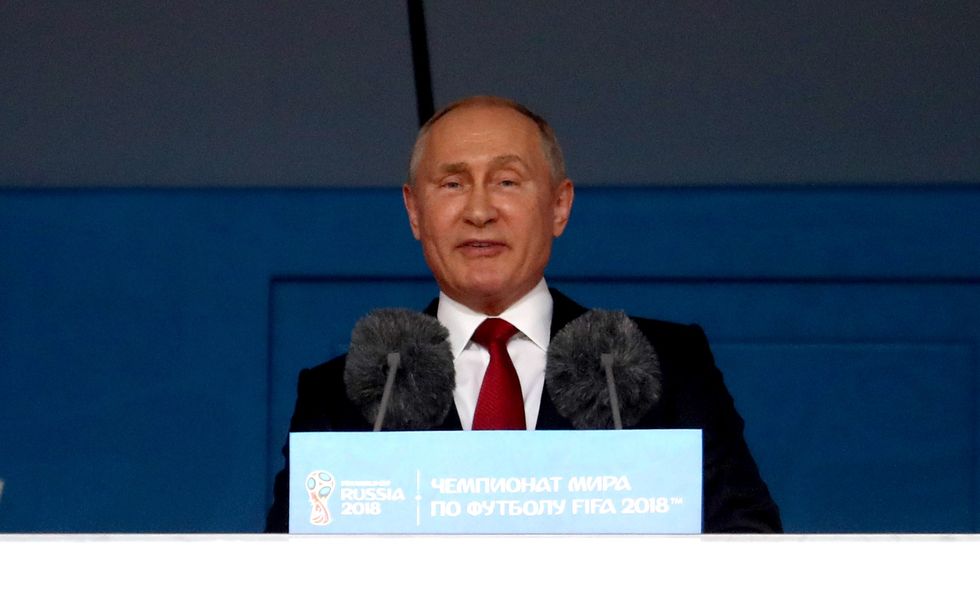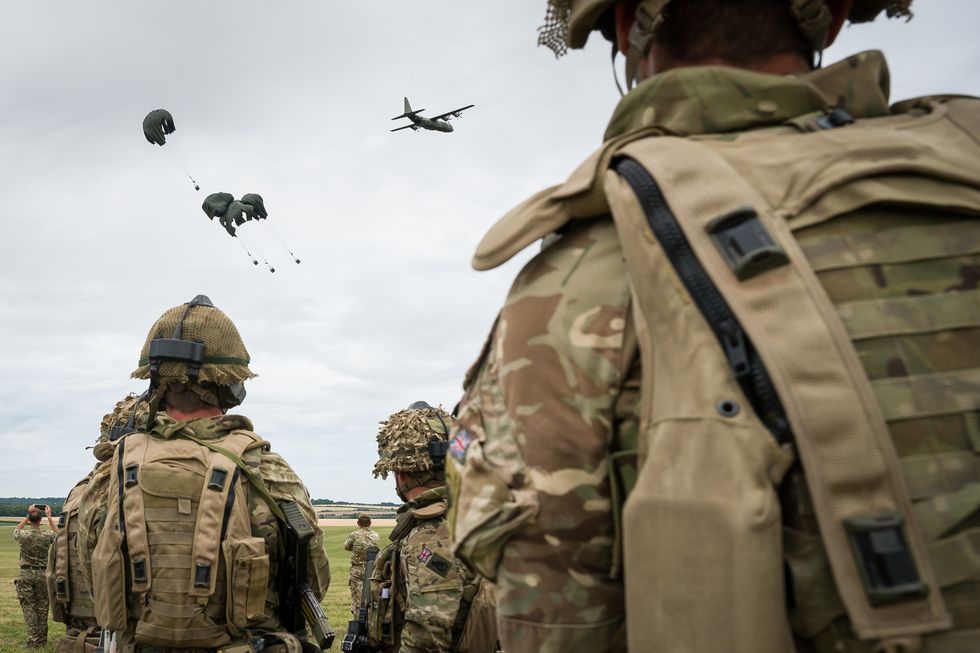Conservative Peer Shaun Bailey backs Labour’s decision to support Ukraine and said …
GB News
Air Vice-Marshal Sean Bell's sobering assessment comes as Russian President Vladimir Putin accuses the West of pushing the world towards global conflict by “deliberately escalating” the war in Ukraine
Don't Miss
Most Read
Trending on GB News
Britain is now facing a "war of national survival", warns a top British defence chief as Russia's gains accelerate on the battlefield in Ukraine.
Air Vice-Marshal Sean Bell's chilling assessment comes hours after President Vladimir Putin accused the West of pushing the world towards global conflict by “deliberately escalating” the war in Ukraine.
“Of special concern, naturally, is the situation in the European region, in particular, in Ukraine. Western countries are deliberately escalating tensions - it is them who are responsible for the present-day tragedy and they continue aggravating the situation,” Putin told a meeting of the Supreme State Council of the Union State of Russia and Belarus, according to Tass, Russia’s state news agency.
“Such an irresponsible policy is driving the world to the brink of a global conflict,” he added.

Putin has accused the West of pushing the world towards global conflict by 'deliberately escalating' the war in Ukraine.
PAPutin will be feeling emboldened at the moment - he's making his largest territorial gains in Ukraine since the start of the war.
Russian forces are advancing at key points along the 1000-kilometre front line, particularly in the Donetsk region to the east.
Here, they've made notable progress towards Pokrovsk and Kurakhove, both important strategic hubs.
Advances have also been noted near Velyka Novosilka and Toretsk, where Russian troops have pushed forward, indicating a multi-pronged approach to encircle and control more of the Donetsk area.
Additionally, there's activity around Kupiansk in the Kharkiv region, although the gains there are more contested, with Ukrainian forces also making counter-moves.
These gains should make Britain nervous, as should Ukraine fall and Russia march across Europe, His Majesty's Armed Forces would be vulnerable, warns Bell, who served 32 years in the RAF and commanded 1 (Fighter) Squadron and the Harrier Force.
In the military analyst's opinion, we do not have the "building blocks" to repel an attack as we "have all of a sudden gone from wars of choice, expeditionary warfare where we take our forces overseas and get involved where and when we want, to wars of national survival".
Although Bell describes this shift in Britain's defensive posture as "sudden", he tells GB News that it is 35 years in the making.
He attributes the decline in military spending to the fall of the Soviet Union in 1991 which marked the end of the Cold War.
LATEST MEMBERSHIP DEVELOPMENTS
Labour MP's call for Islamophobia crackdown will soon be deadly for Britain - Alex Story
Farage set to snatch 95 seats as Reform UK leapfrogs Labour into SECOND in shock new poll
MAPPED: Rural Labour MPs who BETRAYED their farming constituents yesterday – is yours one?

Bell attributes the decline in military spending to the fall of the Soviet Union in 1991
GETTY"Because we didn't perceive a threat for the last 35 years, we didn't pay for the capabilities," Bell said.
The Air Vice-Marshal recalls days spent at RAF Barkston Heath, his old flying train base. The Lincolnshire base housed Bristol Bloodhound surface-to-air (SAM) missiles from 1983 to 1989.
The UK's main air defence weapon is no longer in active service or under current investment for deployment by the UK.
The RAF retired the Bloodhound in 1991 with the dissolution of the Soviet Union, marking the end of its operational role against high-flying bombers.
Does he have a point?
The UK Government, under pressure to reduce public spending, saw defence as an area where cuts could be made without immediate threat to national security due to the new geopolitical reality that followed the end of the Cold War.
The British Army's personnel strength saw a substantial reduction over this same period.
By 2024, the full-time strength of the British Army was reported to be around 72,510 personnel, which marks a significant decrease from the end of the Cold War.
The numbers indicate a reduction of over half since the early 1990s. This downsizing was part of the broader "Peace Dividend" mentality, where military expenditures were cut due to the perceived decrease in global threats post-Cold War.
Britain has committed to increasing its military spending. Former Prime Minister Rishi Sunak announced a plan to increase defence spending to 2.5 per cent of GDP by 2030, which was described as the biggest strengthening of the UK's national defence in a generation.
This investment is sorely needed. Recent reports suggest that the UK's defence capabilities, particularly air defence and coastal defence, are wafer-thin, with the entire British Army potentially lasting only six months to a year in a large-scale conflict.
General Nick Carter, a former army officer and ex-chief of Defence Staff has previously said that the British Armed Forces would likely "exhaust their chief capabilities after the first couple of months of engagement".
This assessment stems from the Commons Defence Select Committee's report on the British Army's current capacity, which noted that ammunition supplies are "far below the level required to counter with certainty a threat from the Russian army".








